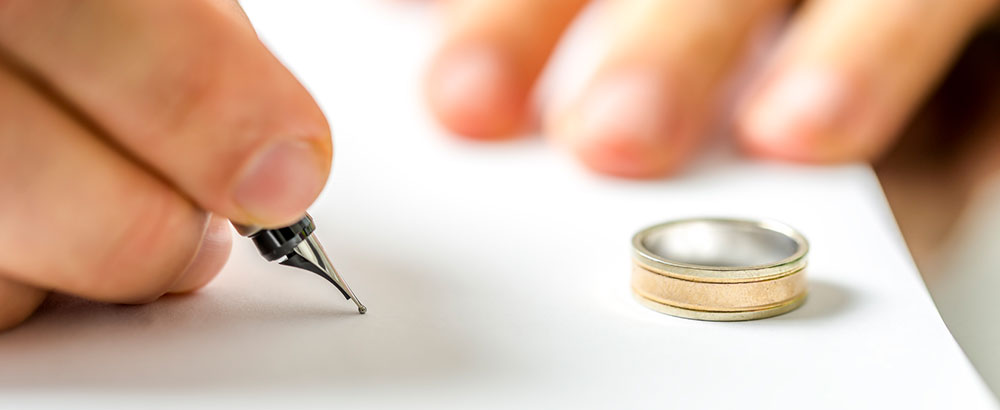Divorce and claims for compensatory damage
It isn’t enough understanding that the divorce process in itself is often an extremely complicated legal process that causes suffering to both parties. In recent years we are witnessing more and more rulings that consider harmful acts committed by one spouse against the other as grounds for suing for damages—whether those acts were committed during the marriage or from the divorce onwards. As we shall see, even if such acts were committed in the heat of passion or due to a momentary impulse, they can result in considerable compensatory payment to the offended party, sometimes without proof of damage.
Slander claims as suits for compensatory damage in divorce proceedings
In a court verdict handed down by Tel Aviv Family Court in 2009, the court sentenced a former husband to pay damages to his ex-spouse in the amount of NIS 25,000, without proof of damage. This was after the husband claimed to the child psychologist (from the Child Development Institute) treating the couple’s child that the mother was afflicted with a mental illness, was being treated by psychiatrists, and suffered from anorexia. Because the father persisted with these claims during the divorce proceedings, the mother agreed to a waiver of her medical history, which showed his assertions to be false and unfounded.
Other instances that can be grounds for a slander claim include filing a false complaint to the police—in the majority of cases under the pretext of a husband acting violently or hurting his children—and demanding his removal from the home. Such a case came before Family Court in Kfar Saba in 2004. At that time the judge ruled that this act constituted a mortal blow to the father’s basic human and civil rights and demanded that the former wife pay tens of thousands of shekels in damages to her ex-husband.
Refusal to grant a Jewish divorce
Refusal to grant a Jewish divorce or, alternatively, refusal to accept a Jewish divorce (on the part of the wife), is occasionally considered as grounds for filing suit for compensatory damage—when one of the sides chooses the path of refusal in order to extract more favorable settlement conditions from the other side. Additionally, not only can the wife sue the husband, but the husband can also sue the wife. Such legal suits can end up with one side paying hundreds of thousands of shekels in damages to the other.
A very well-known verdict that has served as legal precedent for dozens of other cases was handed down in Jerusalem Family Court in 2010. Judge Yakov Cohen ruled: “There is no doubt that the stubborn refusal of the respondent (the wife) to accept the Jewish divorce from the claimant injured his autonomy, his right to self-fulfillment, his honor and freedom. Through such misconduct, the respondent condemned the claimant to a life of solitude and thus caused him considerable psychological damage, sorrow, humiliation, scorn and pain.”
Claims for compensatory damage due to events that occurred during the marriage
Another type of claim for damage relating to a divorce case is a claim concerning events that occurred during the marriage. There is a sufficiently large variety of grounds for such a claim, including:
- A claim of infidelity during the marriage – infidelity that caused considerable suffering to one of the sides.It is important to point out that in 2010, a court in Tiberias considered such a case. The court commented that the issue was problematic and ruled that damages could not exceed NIS 50,000 in any case. Furthermore, there are no grounds for a suit of this type when the infidelity was mutual, and no suit may be filed during the course of the marriage.
- Assault and a violent act.
- Withholding of sexual relations during the marriage (the issue was judged by a court in 2010 and the woman awarded damages in the amount of NIS 150,000).
- Forcible eviction without a binding divorce verdict. Here too damages of tens of thousands of shekels were awarded.
Managing a divorce suit concurrently to a claim for compensatory damages
Up to now we have presented cases that were independent of the divorce itself. However sometimes, one of the spouses wishes to simultaneously conduct the divorce proceeding in Rabbinical Court and the claim for compensatory damage in Family Court. In most cases the Rabbinical Courts, which are authorized to legally dissolve the marriage, do not view such an act favorably.
One of the most complex cases of this sort involved a couple that was married in 1977. About two decades later, in 2001, they began the divorce process. Divorce proceedings were delayed for another two years at which time the wife decided to file a suit with Family Court—for compensatory damages, claiming that her husband refused her a Jewish divorce. At the same time the divorce was being processed in the High Rabbinical Court.
In this case, the dayanim [religious judges] refused to deliberate over the wife’s divorce refusal claim, so long as she was managing the other claim in Family Court. In their decision, the dayanim wrote that since the husband was not legally obliged to grant his wife a Jewish divorce, a dangerous precedent was liable to be set by which any woman who isn’t granted a Jewish divorce can sue the husband in a civil legal proceeding.
It is important to point out that there are bodies such as women’s advocacy organizations for divorce refusal cases that are critical of the rabbinical courts and assert the opposite claim: That due to the fact that divorce proceedings in Rabbinical Courts are long and grueling, many women have no choice but to sue for damage in a civil proceeding.
Claims for compensatory damage – a double-edged sword
Claims for compensatory damage that involve divorce proceedings are quite complex; and if the court gains the impression that the damage caused to one side is considerable, compensation can amount to substantial sums. Accordingly, each of the sides should exercise restraint and understand that it is precisely at this time that they should avoid taking extreme measures that are fueled by distress. They should not give the other side a justifiable reason to sue for damages.
In any case, it is advisable to consult with a divorce attorney who is well-versed in tort law and family law. The attorney will examine each case on its merits and assess the chances for success in a suit as well as its advisability under the current circumstances.
שתפו את הפוסט


















